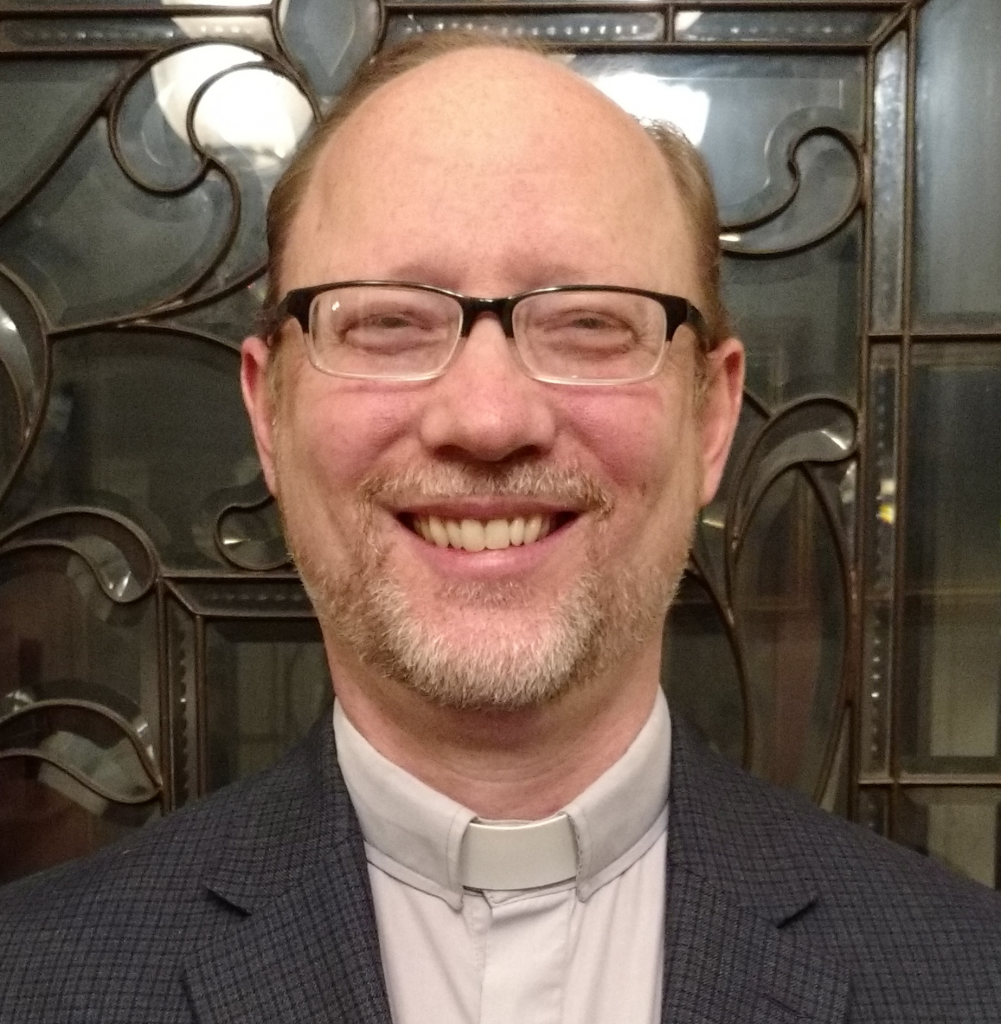
Readings:
Deuteronomy 4:5-14
See, just as the Lord my God has charged me, I now teach you statutes and ordinances for you to observe in the land that you are about to enter and occupy. You must observe them diligently, for this will show your wisdom and discernment to the peoples, who, when they hear all these statutes, will say, “Surely this great nation is a wise and discerning people!” For what other great nation has a god so near to it as the Lord our God is whenever we call to him? And what other great nation has statutes and ordinances as just as this entire law that I am setting before you today?
But take care and watch yourselves closely, so as neither to forget the things that your eyes have seen nor to let them slip from your mind all the days of your life; make them known to your children and your children’s children— how you once stood before the Lord your God at Horeb, when the Lord said to me, “Assemble the people for me, and I will let them hear my words, so that they may learn to fear me as long as they live on the earth, and may teach their children so”; you approached and stood at the foot of the mountain while the mountain was blazing up to the very heavens, shrouded in dark clouds. Then the Lord spoke to you out of the fire. You heard the sound of words but saw no form; there was only a voice. He declared to you his covenant, which he charged you to observe, that is, the ten commandments; and he wrote them on two stone tablets. And the Lord charged me at that time to teach you statutes and ordinances for you to observe in the land that you are about to cross into and occupy.
Matthew 13:10-23
Then the disciples came and asked him, “Why do you speak to them in parables?” He answered, “To you it has been given to know the secrets of the kingdom of heaven, but to them it has not been given. For to those who have, more will be given, and they will have an abundance; but from those who have nothing, even what they have will be taken away. The reason I speak to them in parables is that ‘seeing they do not perceive, and hearing they do not listen, nor do they understand.’ With them indeed is fulfilled the prophecy of Isaiah that says:
‘You will indeed listen, but never understand,
and you will indeed look, but never perceive.
For this people’s heart has grown dull,
and their ears are hard of hearing,
and they have shut their eyes;
so that they might not look with their eyes,
and listen with their ears,
and understand with their heart and turn—
and I would heal them.’
But blessed are your eyes, for they see, and your ears, for they hear. Truly I tell you, many prophets and righteous people longed to see what you see, but did not see it, and to hear what you hear, but did not hear it. Hear then the parable of the sower. When anyone hears the word of the kingdom and does not understand it, the evil one comes and snatches away what is sown in the heart; this is what was sown on the path. As for what was sown on rocky ground, this is the one who hears the word and immediately receives it with joy; yet such a person has no root, but endures only for a while, and when trouble or persecution arises on account of the word, that person immediately falls away. As for what was sown among thorns, this is the one who hears the word, but the cares of the world and the lure of wealth choke the word, and it yields nothing. But as for what was sown on good soil, this is the one who hears the word and understands it, who indeed bears fruit and yields, in one case a hundredfold, in another sixty, and in another thirty.”*
Emanuel Swedenborg, “Faith” §36
Central to the [true] Christian faith as it applies to us is that we believe in the Lord, since believing in Him is the union with Him that gives us salvation. Believing in Him is trusting that He saves people; and since we can have this trust only if we live good lives, believing in Him also means leading a good life.**

Years ago while I was attending a wedding reception I heard a man share with me some words that struck a chord deep within me, words that I have not forgotten since then. He said: “I feel like there are parts of myself that have been lost along the way, and I don’t know if I can somehow find them again.” He got all choked up inside and then said, “Reverend, it’s hard for me to put it into words, but it feels like my youthful joy and happiness about life has burned down like a candle wick, when no more wax can be burned…and I don’t know how to get it back?” And so, I just sat with him that day, and listened to his life story.
How about for yourself? Are there qualities or aspects of yourself, things you can or cannot name, which have been lost along the way? And if that is your case as well, what do you suppose is God’s attitude about those lost parts of yourself? Might it be that the Lord’s response for you is very much like the message in these two parables today—that that which was lost, shall be found?
Maybe the lost part or parts of yourself have been greatly affected by emotional wounds suffered long ago or even very recently? Perhaps others are due to scarred memories? Or, perhaps there is some really huge spiritual or psychological truth that as of yet has not been found?
And so, the inevitable question looms: can we find the lost parts of ourselves? Can we become…whole again? I wonder if these kinds of questions were in the minds of the brave shepherd and the woman in our gospel reading this morning, who lost their beloved sheep and coin respectively? I wonder if they felt like they had lost a part of their lives and might not ever find it again? Clearly by their passionate behavior to recover that beloved sheep and that priceless coin tells us that those two losses were immense, to say the least, and they were willing to continue the search until that which was lost was found.
Regarding this first parable of the 100th sheep that was lost, think about your own experiences of owning and bonding with your own pets in your lifetime: would you agree with me that they become an actual extension of yourself—a living, breathing part of you? Your own dog, your own cat, or your own bunny rabbit or turtle—they aren’t just any dog, or any cat or any animal. They are yours! The shepherd in today’s story would say that his sheep wasn’t just any sheep, but it was his sheep, a particular one…one he valued greatly, to say the least.
And what about this unforgettable woman who had lost her silver coin? Did you know that from an historical-cultural perspective it is very likely that her passion for finding it was due to one of two possibilities:
1) It may have been an issue of genuine necessity. One silver drachma or coin back then was not worth a lot, for it was equal to an entire day’s earnings by a man back then—and the Jews of those days were typically peasant citizens of the Roman Empire, who were usually living on the edge of starvation on a daily basis. This means that that one silver coin could have made the difference between malnourishment and severe hunger or going to bed that night with food in their bellies.
Or 2) there may have been a much more romantic reason for finding that particular coin. The mark of a married Jewish woman back then was a special headdress she wore during her marriage ceremony, one made of ten silver coins linked together by a silver chain. It was not unusual for a Jewish girl back then to scrimp and save for years in order to collect her ten precious coin headdress, which was almost as significant as her wedding ring. And after her completed ten-coin headdress was finished, it became so inextricably hers, that nothing could force her to part with it, not even severe financial debt. The lost coin in this parable may easily have been one of the priceless ten headdress coins that once lost would be searched for with passion.
But, in either case, can you imagine the joy that this woman felt who found her tenth coin?! And think of the shepherd too, of the jubilation and gladness he felt upon finding his lost sheep! He would have been humming or whistling while carrying it home around his shoulders feeling immensely happy as the story tells us. And both the shepherd and the woman were so glad to have found what was lost, that they then called their friends and neighbors together to share in their jubilation.
Jesus was trying to teach a very new kind of spiritual truth to his listeners that day, to the scribes and Pharisees and to the tax collectors and other so-called sinners. What He taught them was a polar opposite to what the orthodox believed. The Pharisees, you see, had a very different view of how God feels about and deals with sinners. They believed that it was only those who kept very strict, detailed rituals and rules (called “the law”) about how to live a righteous life were esteemed in God’s eyes. And they knew that the tax collectors and shepherds were either unwilling or unable to keep on track with their fastidious traditions. And so therefore, anyone unwilling or unable to keep up with their micromanaging, judgmental ways were categorically dubbed a “sinner.”
The orthodox Jews back then called the “sinners” the People of the Land; and there was a complete barrier between the Pharisees and the People of the Land. The Pharisaic regulations laid it down saying: a Pharisee was forbidden to be the guest of any such man or to have him as his guest. He was even forbidden, so far as it was possible, to have any business dealings with those outcasts. It was the deliberate Pharisaic aim to avoid every contact with the people who did not observe the petty details of the law. Obviously, they would be shocked to the core at the way in which Jesus spent a lot of time with people who were not only rank outsiders, but sinners, contact with whom would necessarily defile them.
We will understand these parables more fully if we remember that the strict Jews back then said, not: “There will be joy in heaven over one sinner who repents,” but instead they taught, “There will be joy in heaven over one sinner who is obliterated before God.”
So now, let us look again at the way that Jesus taught the people about God’s attitude toward the lost and the sinners. Traditionally in these two parables, God is in the role of the shepherd and in the role of the woman seeking to find her lost coin. In opposition to the beliefs and teachings of the Pharisees, the Lord gave the people the view that God cherishes those who have gone astray or become lost. Furthermore, Jesus taught that God’s love for sinners inspired God to go out and search for them in the greatest of ways, and who kept on searching until He finds them. And then upon finding them rejoices magnificently in a neighborhood celebration.
But there is yet another meaning to these two parables taught by our Lord, which is what we find within our theology called the inner meaning of these parables. Concerning the shepherd’s story, Jesus said, “Suppose one of you has a hundred sheep and loses one of them.” Christ is asking us to imagine we are this sheepherder. At the beginning of this story we find that prior to us losing one of our precious sheep, we had been whole and complete—a shepherd with 100 sheep—or, to include the next parable, a woman with ten coins. But then life happens, and we lose one of our beloved sheep or we lose one of our precious silver coins. The inner-spiritual meaning of these parables is asking you and me personally, have you somehow lost a very important part of yourself? And if so, what is it like to lose it?
If you do have experience of what it feels like to lose a part of your wholeness, then you know what it is like to be the shepherd or the woman in these stories this morning. Out of my experiences of life, I would hazard to guess that we all wind up losing some vital part of our wholeness along life’s long journey—for one or more legitimate reasons (death of loved one, divorce, gradual loss of one’s health, or so many disappointments in life). So, would you say that as a listener this morning, are you more like the “sinners” and tax collectors in this scenario (those who were aware that they were lost), or are you more like a scribe or Pharisee listening to Christ’s words (being blind to having lost some part of your wholeness and choosing instead to point the finger at others in judgmental fashion)?
And so, if this applies to you, what part or parts of your life are you searching for today? What do you need to have to rediscover more of the wholeness you once enjoyed? Maybe you are conscious that something vital is missing….or, maybe you’re not really aware of that which is lost, but instead you have a foggy knowing, a restless longing to regain that which you once had in life?
In conclusion, can you perhaps, give a name to that part of you, which was lost and is being found again—something so very dear to your heart and soul, that God is gently guiding you daily to find it? I pray that each of us can learn to look at ourselves and at others with compassion, and know that the Lord and His angels are working now, every day, to help us to find that which was lost, and is being found again…today!
*New Revised Standard Version Bible, copyright © 1989 the Division of Christian Education of the National Council of the Churches of Christ in the United States of America. Used by permission. All rights reserved.
**Swedenborg, Emanuel. Life / Faith. West Chester: Swedenborg Foundation, 2014.

Rev. Kit Billings, his wife Penny, and their daughter Julia moved to LaPorte, Indiana in 2012, where he is Pastor of the LaPorte New Church, a historic Swedenborgian sacred space. Kit enjoys ministering with people of all ages, and supporting others in their journey of growth with the Lord.
vs118a